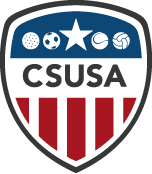5 tips to help you perform better
By Team CSUSA
It’s the New Year once again and another chance to finish off the last of that chocolate, set those optimistic goals and get back to work. Gym memberships have sky-rocketed and an ever-increasing number of diet/nutrition “experts” are saturating our newsfeeds and social media platforms with the latest and greatest healthy living ideologies. While these can be helpful and inspire us to learn more, it is also important to remember that there are many contributing factors to becoming the best athlete possible.
For new student-athletes, or those about to become one later this year, the change in lifestyle can be challenging at first. You will train up to six times per week for two hours at a time, substituting one or two sessions every few days for a highly intense fixture against top level opposition. If you’re not used to this type of physical output, it can be tough on the body until you adapt to the routine. Some student-athletes are able to acclimatise almost immediately, whereas others may take a little longer.
There are multiple elements that can affect whether or not you get up to speed and reach peak levels of fitness and performance. Here, we are going to briefly discuss five of them:
1) Hydration
We need water to survive and also depend on it to be at our best on the pitch, track, court, course or in the gym. Water is absolutely crucial for student-athletes in preparation, during and after exercise in order to help prevent cramps, maintain the body’s optimal core temperature (which stops you overheating) and to help you to recover quicker. Experts recommend drinking 2 litres (half a gallon) of water each day – however if you are training or competing, that amount must increase accordingly! Tip: If your urine is dark coloured, you need to drink much more! The clearer the colour of your urine, the better-hydrated you are. Keep drinking!
2) Eat Healthily and Frequently
The rigorous daily exercise and activity that student-athletes go through uses up an enormous amount of energy, all of which needs to be restored by food (among other things). At college, most student-athletes have a wide range of food to choose from come meal time, either at their campus cafeteria or at local restaurants nearby. You will be treated like an adult and left to your own devices for the most part (when travelling with the team you will always eat as a group). Therefore, you have to take responsibility for what food goes into your body and how often you eat.
In order to provide your body with the right sustenance to train and compete, you will need to ensure that you stick to a smart, balanced diet that is rich in things like protein, (smart) carbohydrates, electrolytes antioxidants, minerals and vitamins. Skipping meals is a bad choice; eating three square meals a day, punctuated by healthy snacks such as fruit, nuts or cereal bars should give you a good platform to build on. Most campuses and athletic departments will have a nutrition expert – utilise this privilege and speak to them, educate yourself and improve your personal eating habits!
3) Sleep!
Not usually a point we need to reiterate to students, but an important factor in overall well-being, nonetheless. For young adults (18 – 25 years old) it is recommended that you get 7-9 hours of sleep each night. However, there may be some days – e.g. a heavy training session followed by an exam and then writing a 3,000 word essay – that you need more than that to give yourself enough rest. Sleep schedules are important for your body, too. Try and get into a regular routine of what time you go to bed and wake up; this will help you sleep better and feel more alert throughout the day.
4) Maintenance
Your body is a vehicle for your success as an athlete. Without it, you are unable to compete or train and therefore you are no use to your coach or teammates. Injuries come and go in sport and that is something that we have all had to deal with at one time or another. However, many athletes don’t take nearly enough time to help prevent and minimalize the risk of further setbacks or treat existing, chronic injuries. College athletics departments will all have Athletic Trainers on hand who work specifically for your team. In the US, Athletic Trainers fill the role of physiotherapist, sports medicine professional and rehabilitation advisor for student-athletes. These individuals work tirelessly to help people like you deal with an injury, recover from one or simply work on improving physical areas of your game – agility, flexibility or athleticism, for instance.
In addition, athletic departments often boast a tremendous amount of high level facilities and apparatus, such as ice baths, electro-stim machines and even hydro-pools and oxygen tanks in some places. The student-athletes that take their performance most seriously are in here an hour before and after practice/games, and often spend countless extra hours throughout the week stopping by to either receive treatment or work on specifically designed individual fitness programs. If you do not take advantage of what is made available to you as an athlete, it’s difficult to look yourself in the mirror and truly say that you’re doing all you can to get better!
5) Review
Be your biggest critic! That is not to say that you also shouldn’t believe in yourself 100%, because that is a necessity, also. However, in order to improve, we must learn from mistakes and successes. Watching video playback of your performance is a great way of learning more about yourself, whether it is a 90 minute soccer match, a golf swing, a tennis serve or even a few reps at the gym. Nobody is perfect and everyone can improve, no matter how minimal the improvement may be or how arduous the process is.
As a student-athlete, almost all game performances are recorded in this day and age. Many training sessions will also be captured on video for review purposes. Coaches want to hear and see their athletes coming in to view the tapes and asking for help or tips on development. Watching footage of yourself can change the way you originally assessed your own actions. Sometimes it can prove wrong the doubt you had about one particular incident, showing you that what you did was correct. Alternatively, it can open your eyes to a variety of different options you had at the time. The video playback can demonstrate where you’re going wrong technically, what needs minor correcting and also what needs a lot more work. It’s always easy to focus on the things that we do well as athletes. However, the true champions are those that get back to work and focus on the things they need to get better at!




